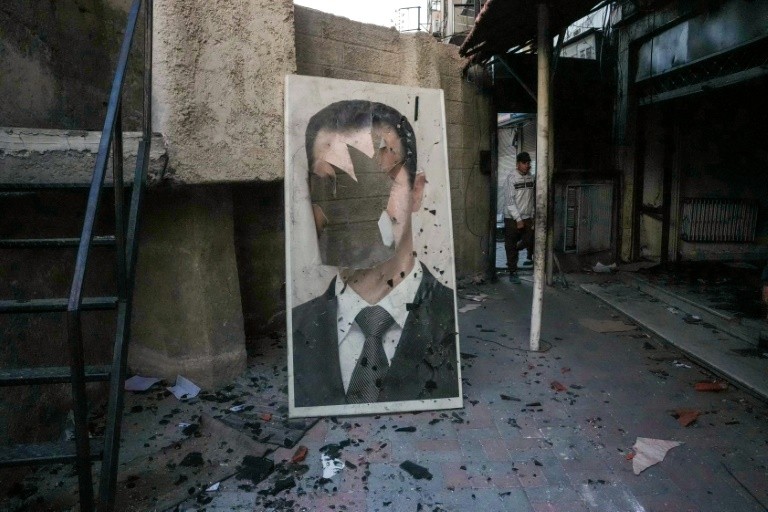
The United States launched dozens of air strikes on ISIS camps in Syria following the ousting of Syrian President Bashar al-Assad's regime. On Sunday, as Islamist rebels took control of Damascus, Assad escaped to Russia where he was granted asylum.
The US Central Command (CENTCOM) said on Sunday that it had struck more than 75 targets, including ISIL (ISIS) leaders, operatives and camps. The attacks used B-52 bombers, F-15 fighters and A-10 Warthogs, which have already been flying over the country this month for other attacks. The move came to make sure that the Islamist terrorist group did not take advantage of the end of al-Assad's rule.
Citizens flooded the streets to celebrate the overthrow of Assad, marking a pivotal moment in Syria's long-running civil war.
While the uprising raises questions about the nation's future and the broader regional landscape, U.S. General Michael Erik Kurilla emphasized that there "should be no doubt" the U.S. will act decisively to prevent ISIS from reconstituting amid the ongoing developments.
"All organizations in Syria should know that we will hold them accountable if they partner with or support ISIS in any way," he said in a statement.
President Biden announced Sunday that the U.S. will maintain its anti-ISIS operations, describing Assad's fall a "fundamental act of justice" but also said the current moment was full of "risk and uncertainty."
The Syrian civil war contributed to the rise of ISIS in the 2010s, prompting the U.S. military to lead an international coalition to combat the terrorist organization. Currently, around 900 U.S. personnel remain in Syria, with the mission expected to conclude within two years.
Assad's fall was accelerated by the diminished strength or focus of his key allies—Russia, Iran, and Hezbollah—over the past year. As rebel forces captured major cities in rapid succession over the past two weeks, the government's military disintegrated, leading to Assad's ouster.
Meanwhile, the military arm of HTS signaled wishes to take over from the transitional government soon.
"Our forces are about to finish controlling the capital and preserving public property, and the new government will begin its work immediately after its formation," the military operations centre of the opposition forces said in a short statement on its Telegram channel.
© 2026 HNGN, All rights reserved. Do not reproduce without permission.








